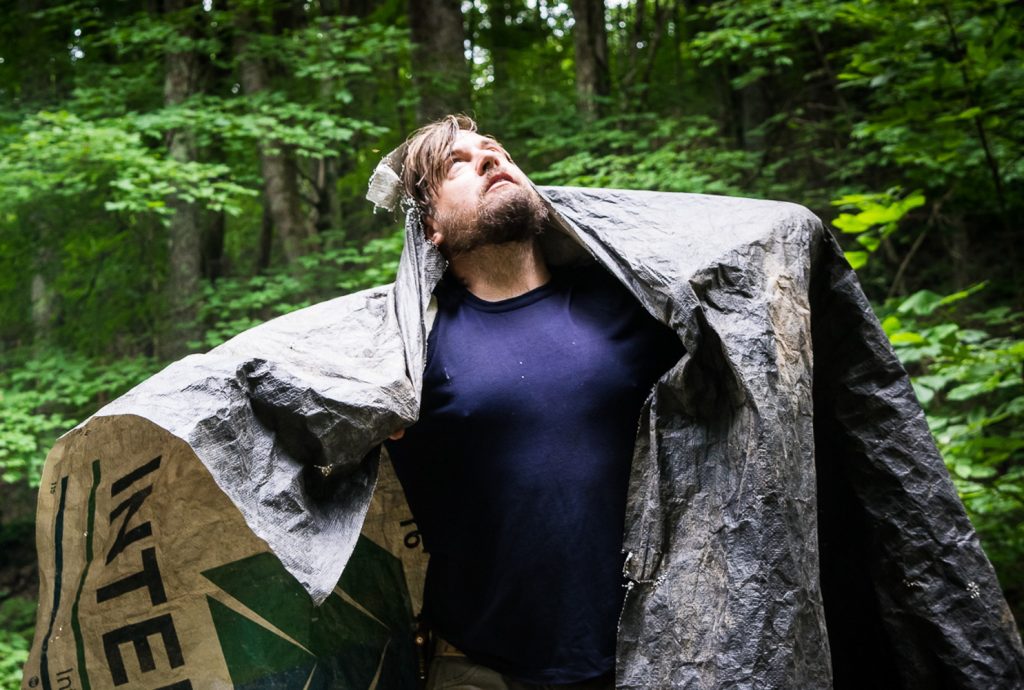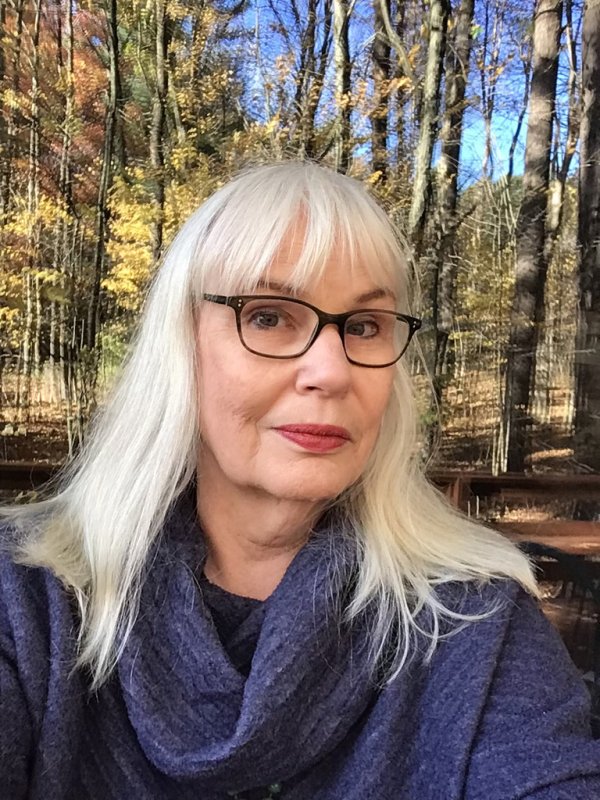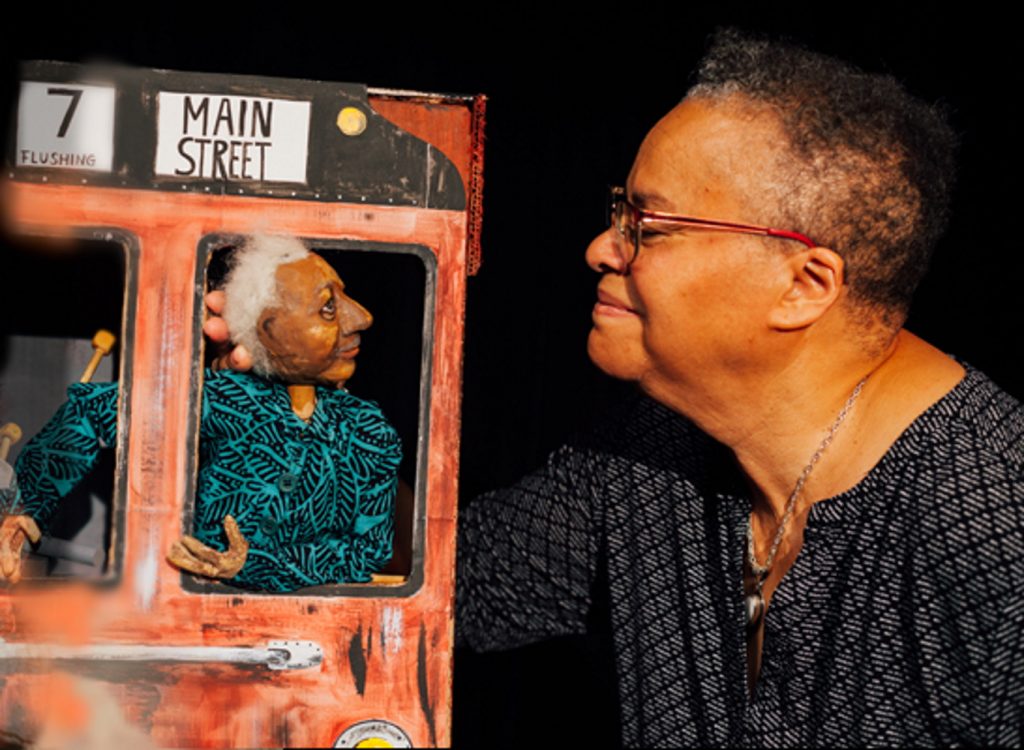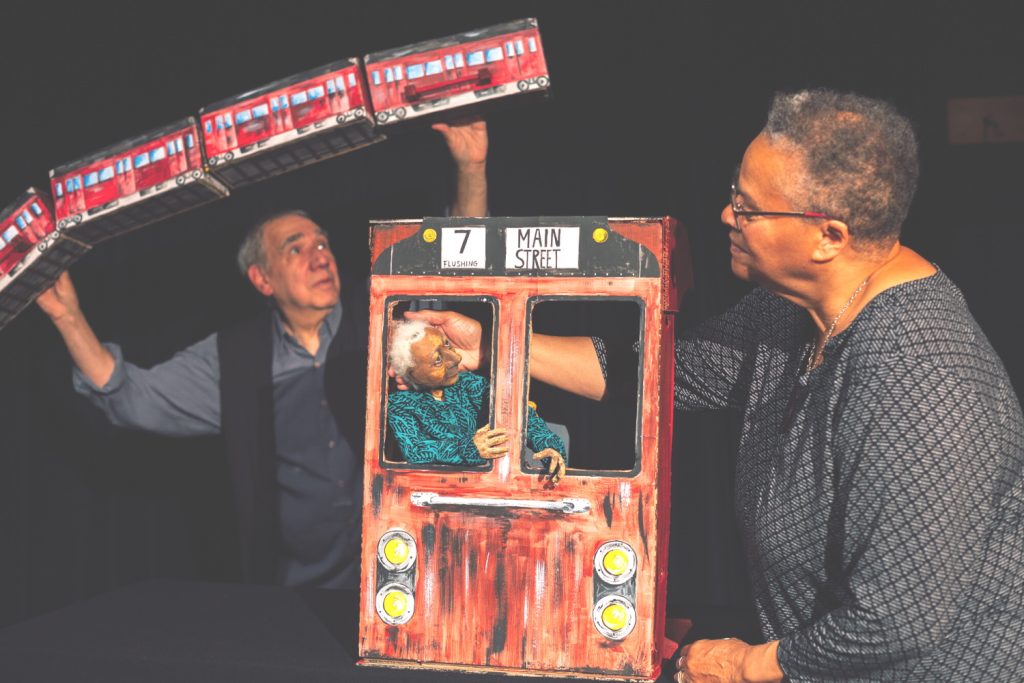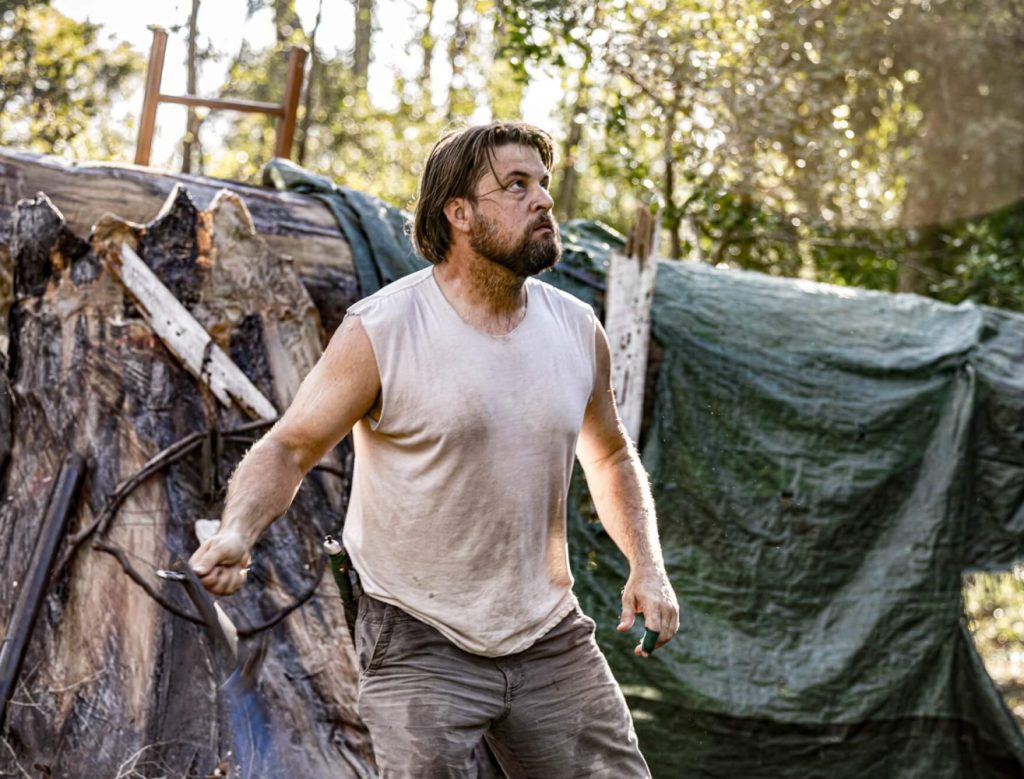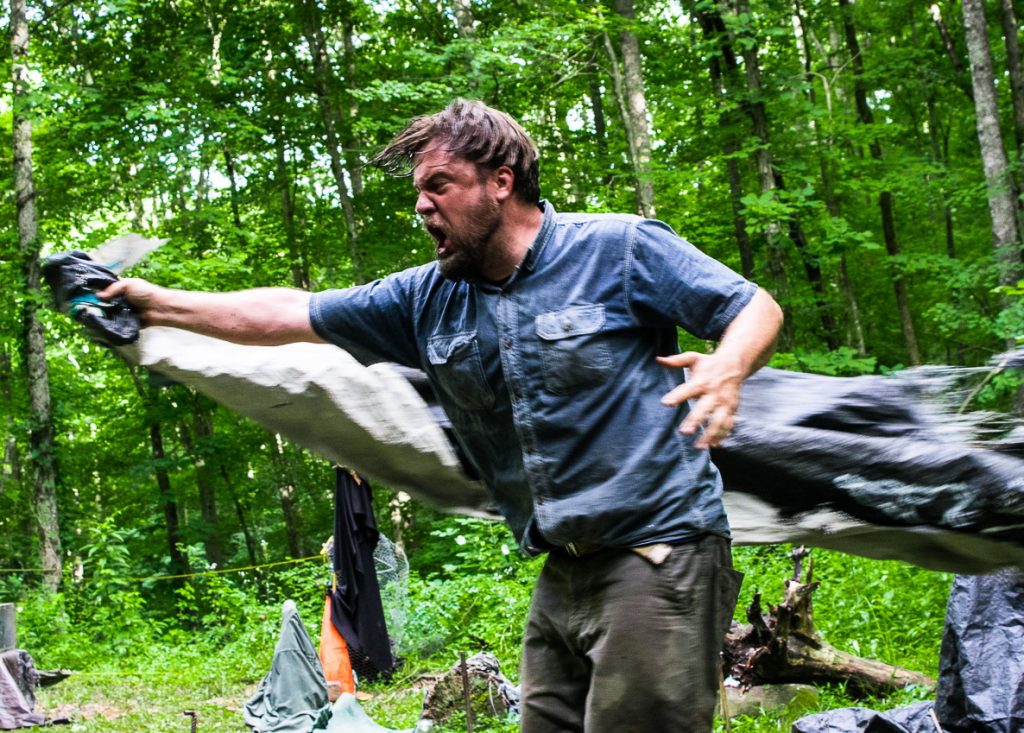After a boundary-busting 30-year run, the Ko Festival of Performance is coming to a close. Formed as a collaborative, for many years the summer mainstay has been guided by Sabrina Hamilton, one of its co-founders.
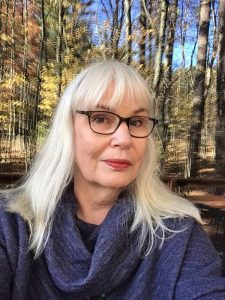 In a message announcing this final season, Sabrina explained the decision to bring the festival to a close grew primarily from the pair of life-changing upheavals of the past two years: the soul-searching engendered in the national theater community by the murders of George Floyd and others, and the curbs on performance forced by the pandemic.
In a message announcing this final season, Sabrina explained the decision to bring the festival to a close grew primarily from the pair of life-changing upheavals of the past two years: the soul-searching engendered in the national theater community by the murders of George Floyd and others, and the curbs on performance forced by the pandemic.
As these turning points converged, she said, “I found new joy in turning my focus to training and supporting others as they develop into self-presenting artists” – thus this summer’s festival theme, “Stepping Up/Stepping Back.”
But, she promised, “Ko isn’t closing. Ever-nimble, we are transforming and seeking new ways to serve both the art form and the community that we hold dear.”
In the I Ching, the ancient Chinese “book of changes,” the hexagram Kō stands for Revolution, casting off the old, specifically, shedding the skin – in this case, shaking off old aesthetic structures to find new, more supple forms underneath.
 When I caught up with Ko in its second season, I wrote that in the great variety of summer theater in this region, “this festival is absolutely unique. Ko focuses on new pieces of interdisciplinary theater and performance art: quirky, often experimental works that push at stylistic boundaries. Here alone we can venture beyond the literal, lateral world of plot-centered theater into worlds where the only certainty is surprise.”
When I caught up with Ko in its second season, I wrote that in the great variety of summer theater in this region, “this festival is absolutely unique. Ko focuses on new pieces of interdisciplinary theater and performance art: quirky, often experimental works that push at stylistic boundaries. Here alone we can venture beyond the literal, lateral world of plot-centered theater into worlds where the only certainty is surprise.”
That has held true through the decades, as some 150 individuals and ensembles – local, national international – have come to showcase new work. Ko’s seasons have also included developmental residencies and hands-on workshops in everything from storytelling to puppetry to mask-making to solo performance, plus in recent years the always-sold-out Story Slam.
The first production in this year’s two-show farewell season embodied Ko’s dedication to “fostering innovative artistic collaborations … to create and present pieces that are a springboard for community dialogue, ones that consider themes and issues vital to our civic and personal lives.”
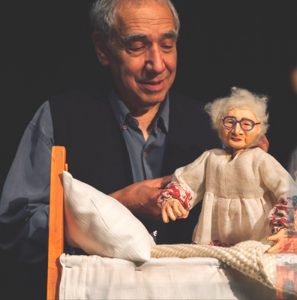 Eric Bass and his wife, Ines Zeller Bass, founded Sandglass Theater 40 years ago. They are now in the process of turning over leadership of their internationally renowned puppet troupe, based in Putney, Vermont, to the younger generation that has grown up in the company.
Eric Bass and his wife, Ines Zeller Bass, founded Sandglass Theater 40 years ago. They are now in the process of turning over leadership of their internationally renowned puppet troupe, based in Putney, Vermont, to the younger generation that has grown up in the company.
Linda Parris-Bailey stepped down in 2019 after 45 years as director of Carpetbag Theatre, the multi-generational, multi-racial activist ensemble based in Knoxville, Tennessee, dedicated to “giving artistic voice to the issues and dreams of people who have been silenced by racism, classism, sexism, ageism, homophobia and other forms of oppression.”
Eric and Linda are the creator/performers of Flushing, presented at Ko last weekend. The subtitle is “Make Room for Someone Else,” which is what both of them have lately determined to do. It’s a medley of memories and reflections, sprinkled with original songs and enlivened by interactions with small puppets representing real people. (The puppets and set are designed by Ines, the figures manipulated with the help of Sandglass member Kirk Murphy.)
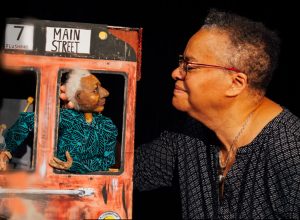 We find the pair standing at the edge of the future, represented by yellow caution tape labeled The Brink, hesitant to step over. Before taking that step they revisit their respective upbringings and formative experiences.
We find the pair standing at the edge of the future, represented by yellow caution tape labeled The Brink, hesitant to step over. Before taking that step they revisit their respective upbringings and formative experiences.
At four separate stations around the stage, we meet puppet versions of their parents, each in a characteristic setting: Eric’s songwriter father at his baby grand piano and his PR copywriter mother at her electric typewriter; Linda’s mom at the wheel of her car waving a cigarette, her dad in the cab of his #7 subway train – the Flushing line.
“Extraordinary,” they sing, “how ordinary … The work that you do does not define you … Worlds are built on your labor and love.”
These two elders, on the brink of “turning in our keys,” as Linda puts it, and contemplating the legacy they will pass on, look back on the legacy they inherited from their own forebears. “I’d like to leave you something you can build on,” they sing – “a pathway to your dreams.”
For many years, one certainty in a Ko season was a visit from Ralph Lee’s Mettawee River Company. That tradition of outdoor, earthbound performance is echoed in this coming weekend’s show, Ezell: Ballad of a Land Man, from Kentucky-based Clear Creek Creative.
 Described as “a story from the foothills of Appalachia,” the one-man piece is “an environmental, cultural and spiritual parable of domination and resilience.” Written and performed by Bob Martin, it “explores the complexities of today’s issues of climate change, indigenous erasure and environmental extraction.” His character, Ezell, is faced with an existential choice between leasing his mineral rights to a fracking company and “the chance to reconnect with the people and land of his raising.”
Described as “a story from the foothills of Appalachia,” the one-man piece is “an environmental, cultural and spiritual parable of domination and resilience.” Written and performed by Bob Martin, it “explores the complexities of today’s issues of climate change, indigenous erasure and environmental extraction.” His character, Ezell, is faced with an existential choice between leasing his mineral rights to a fracking company and “the chance to reconnect with the people and land of his raising.”
It’s an immersive piece that begins with “a contemplative walk through the woods to the performance site with live music,” and concludes with a community dialogue – a key adjunct to every Ko performance since the beginning.
July 29-31, starting from Emily Dickinson Hall on the Hampshire College campus. Tickets and info here.
Flushing photos by Kirk Murphy
Ezell photos by Erica Fladeland & Melisa Cardona
In the Valley Advocate’s present bi-monthly publication schedule, Stagestruck will continue to be a regular feature, with additional posts online. Write me at Stagestruck@crocker.com if you’d like to receive notices when new pieces appear.
Note: The weekly Pioneer Valley Theatre News has comprehensive listings of what’s on and coming up in the Valley and beyond. You can check it out and subscribe (free) here.
The Stagestruck archive is at valleyadvocate.com/author/chris-rohmann
If you’d like to be notified of future posts, email Stagestruck@crocker.com

